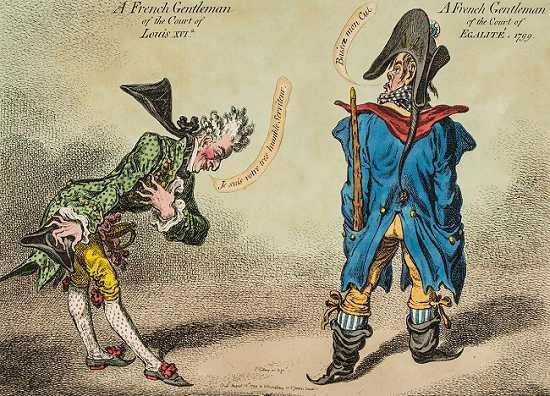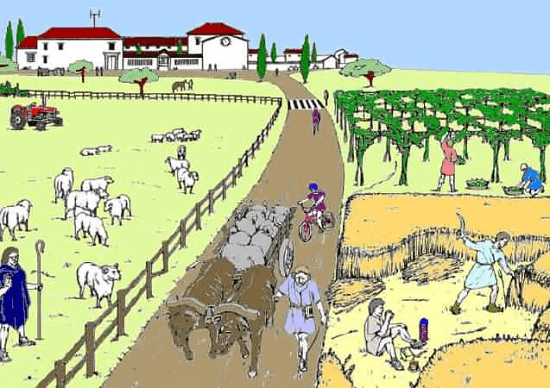Satire DefinitionMost of us are already fairly familiar with satire, even if we aren't constantly aware because it is so present in daily life. Any culture, art, or entertainment can include Satire. It is a frequently amusing method of making ridicule the ruling class. 
Sometimes it is produced to bring about change in society. The history of Satire is extensive and continues to be necessary now, just as it was in ancient Rome. Definition of SatireSatire is a literary genre and method that reveals and mocks human nature. Although it is frequently focused on politics, it need not be. In literature, writers successfully create Satire using irony, comedy, and exaggeration. What is the History of Satire?Satire derives from the Latin word "Satur," which means "well-fed," and was used in the term "lanx satura," which means "a dish full of many kinds of fruit." Even though these terms appear utterly unrelated to the concept of Satire, they were employed by Roman critics and authors in ancient times to describe what we now understand to be Satire, including what is generally acknowledged as the work that gave rise to Satire: Aristophanes' Old Comedy. In the sixteenth century, the term "satire" entered English. Aristophanes, an ancient Greek poet, created Lysistrata in 411 BC. Lysistrata, the main character in this satirical play, convince women to keep themselves away from having sex with men to persuade them to put an end to the Peloponnesian War. Aristophanes satirized the Peloponnesian War in this tremendously popular play, which continues to be read and studied in schools nowadays, and made fun of the inequalities between men and women. Numerous times throughout the years, the tale of Lysistrata has been repeated and reinterpreted, most notably in the Chicago-set 2015 film Chi-Raq by Spike Lee. Satire Types
Satire is still an effective weapon in modern society. Over the past few decades, Satire has found remarkable success in various media, particularly film, and television. Satire comes in three primary forms, each of which plays a specific significance. 1. Horatian SatireHoratian Satire makes humorous societal comments. In a lighthearted approach, it is designed to make fun of someone or something. An ancient Roman poet, Horace inspired a considerably lighter style of Satire known as Horatian. A Horatian satirist is typically more concerned with making others laugh than making stunning observations or cutting criticism. By focusing on human failings and imperfections, this humor is generated. 2. Juvenalian SatireThe Satire of Juvenal is not humorous; it is grim. It aims to challenge established wisdom. Named for the Roman poet Juvenal, Juvenalian Satire tends toward melancholy rather than the overtly humorous. It frequently has an extreme impact when it targets institutions, public individuals, and societal norms. 3. Menippean SatireMenippean Satire criticizes a specific viewpoint, such as racism or homophobia, from a moral standpoint. Like Horatian Satire, it can be humorous and lighthearted but also as attacking as Juvenalian Satire. Menippean Satire is the oldest and one of the rarest forms of humor. It takes its name from the polemicist Menippus of ancient Greek, who invented a kind of indirect mockery. Instead of satirizing individuals or institutions, this strategy mocks beliefs and attitudes. However, Menippean satires are known for their sharp and scathing comments. Political Satire Examples
Since its invention in eighteenth-century England, political cartoons have served as an effective satirical medium. Political Satire is still relevant today in a variety of ways. 1. Political HumorThese may be found online and in print. One huge panel, a drawing that exaggerates the physical characteristics of a noteworthy individual or elected official, and a circumstance that makes a scathing reference to the political figures of the day are common features of political cartoons. 2. Political GimmicksSome comedians have performed more extensive pranks as political Satire than just sarcastic jokes on television. The Components of SatireSatirizing a subject sometimes involves the employment of other literary techniques. 1. Irony
Irony is a technique used by satirists to convey ideas that are contrary to what is happening or being mentioned. Jane Austen begins Pride and Prejudice with the words: "It is a universally recognized fact that a single man who has fortune must need a wife." As the novel progresses, however, it becomes clear that almost none of the prosperous male characters desires to get married, which gives the narrative a touch of situational comedy. 2. Anachronisms
Something that appears in a story but is anachronistic with the period in which the story is set is known as an anachronism. It can demonstrate how irrelevant a satirical character is. Mark Twain's parody of feudalism and the monarchy, Hank, a time-traveling guy from the 19th century, is followed as he experiences life in the sixth century in the novel A Connecticut Yankee in King Arthur's Court. With anachronistic artifacts from his day and time, like fireworks, Hank frequently impacts everybody he interacts with. 3. Juxtaposition
A juxtaposition compares and contrasts two objects by putting them side by side. Moonraker, a James Bond book by Ian Fleming, has satiric juxtaposition. 4. Parody
Satirical parody exaggerates the storytelling process by copying another literary genre for humorous effect. Satire and parody are sometimes mistaken for one another, although parodies are typically more straightforward, have a lighter tone without any serious undercurrents, and emulate the voice of their subjects. For instance, Seth Grahame-Smith satirically combines a romance tale of manners and a zombie thriller in Pride and Prejudice and Zombies by imitating Jane Austen's writing style. An exact parody of Jane Austen's opening line from Pride and Prejudice appears in the book's first sentence: "It is a universally acknowledged fact that a zombie with brains must require more brains." 5. Overstatement
An overstatement exaggerates the importance of something frequently to show how shaky a character's grasp of reality is. Dave Barry, a humorist, utilizes exaggeration in his essay "Revenge of the Pork Person" to illustrate how some men have an exaggerated perception of their attractiveness. 6. Understatement
The opposite of an overstatement is an understatement. To show a character's ignorance of or disconnection from reality diminishes the importance of anything. Satirical components, such an understatement, may be found in J.D. Salinger's The Catcher in the Rye. The Purpose of Satire
Satire is intended to entertain while making fun of individuals, authority, and society. Satirists aim to teach, educate, and advance humankind by exposing the shortcomings in existing structures or modes of thought. Many satires use humor as a key element, although humor is not Satire's only goal. It's only a means for the writer to convey their opinions in a manner that readers will find engaging. A satirist hopes to provoke thought in their audience as well as amusement. Depending on the topic, the author may aim to persuade readers, expose fraud, or focus light on obscure social injustices. Famous Satirists
Next TopicSchool Definition
|
 For Videos Join Our Youtube Channel: Join Now
For Videos Join Our Youtube Channel: Join Now
Feedback
- Send your Feedback to [email protected]
Help Others, Please Share










